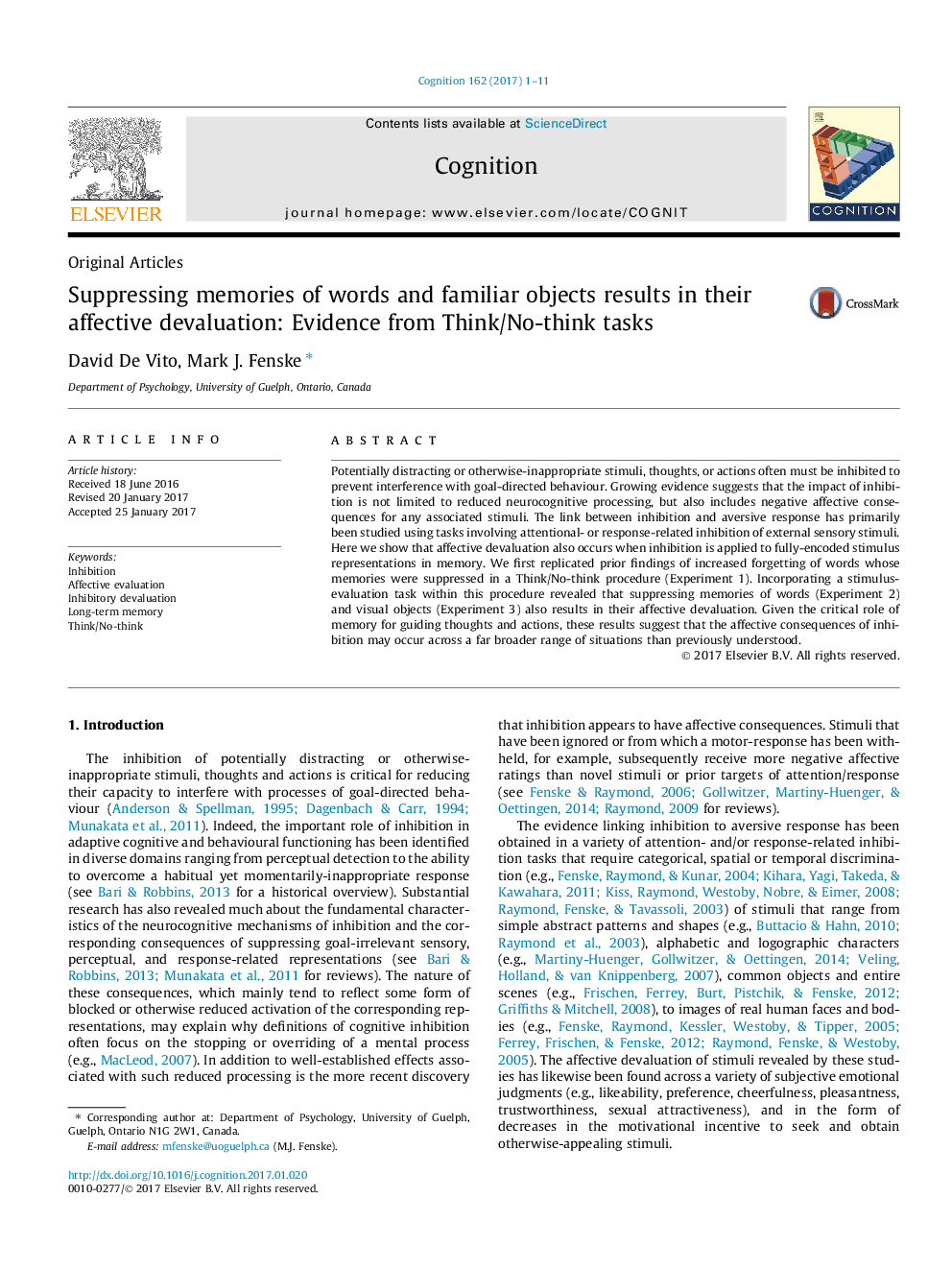ترجمه فارسی عنوان مقاله
سرکوب خاطرات کلمات و اشیای آشنا باعث کاهش ارزش عاطفی آنها می شود: شواهد از وظایف فکر / فکر نکنید
عنوان انگلیسی
Suppressing memories of words and familiar objects results in their affective devaluation: Evidence from Think/No-think tasks
| کد مقاله | سال انتشار | تعداد صفحات مقاله انگلیسی |
|---|---|---|
| 122055 | 2017 | 11 صفحه PDF |
منبع

Publisher : Elsevier - Science Direct (الزویر - ساینس دایرکت)
Journal : Cognition, Volume 162, May 2017, Pages 1-11
ترجمه کلمات کلیدی
بازداری، ارزیابی مؤثر، کاهش ارزش بازدارنده، حافظه بلند مدت، فکر / فکر نکنید
کلمات کلیدی انگلیسی
Inhibition; Affective evaluation; Inhibitory devaluation; Long-term memory; Think/No-think;
ترجمه چکیده
برای جلوگیری از مداخله در رفتار هدفمند، باید اغلب محرک ها، افکار و یا اقدامات منحرف و غلط منحرف شود. شواهد حاکی از آن است که تأثیر مهار محدود به کاهش پردازش عصبی شناختی نیست، بلکه شامل عواقب عاطفی منفی برای هر محرکی است. ارتباط بین مهار و پاسخ واپسگرا عمدتا با استفاده از وظایف مربوط به مهار محرمانه حس گر خارجی در ارتباط با توجه یا پاسخ بررسی شده است. در اینجا ما نشان می دهیم که کاهش ارزش عاطفی نیز زمانی رخ می دهد که مهارتی به نمایندگی های محرک کاملا رمز شده در حافظه اعمال شود. ابتدا یافته های قبلی از افزایش فراموشی کلمات که خاطرات آنها در یک روش فکر / نداشتن (آزمایش 1) سرکوب شده بودند، تکرار شد. مشارکت در ارزیابی محرک در این روش نشان داد که سرکوب خاطرات کلمات (آزمایش 2) و اشیاء بصری (آزمایش 3) همچنین باعث کاهش ارزش عاطفی آنها می شود. با توجه به نقش حیاتی حافظه برای هدایت افکار و اعمال، این نتایج نشان می دهد که عواقب عاطفی مهار در طیف گسترده ای از موقعیت ها ممکن است رخ دهد که قبلا درک شده است.

